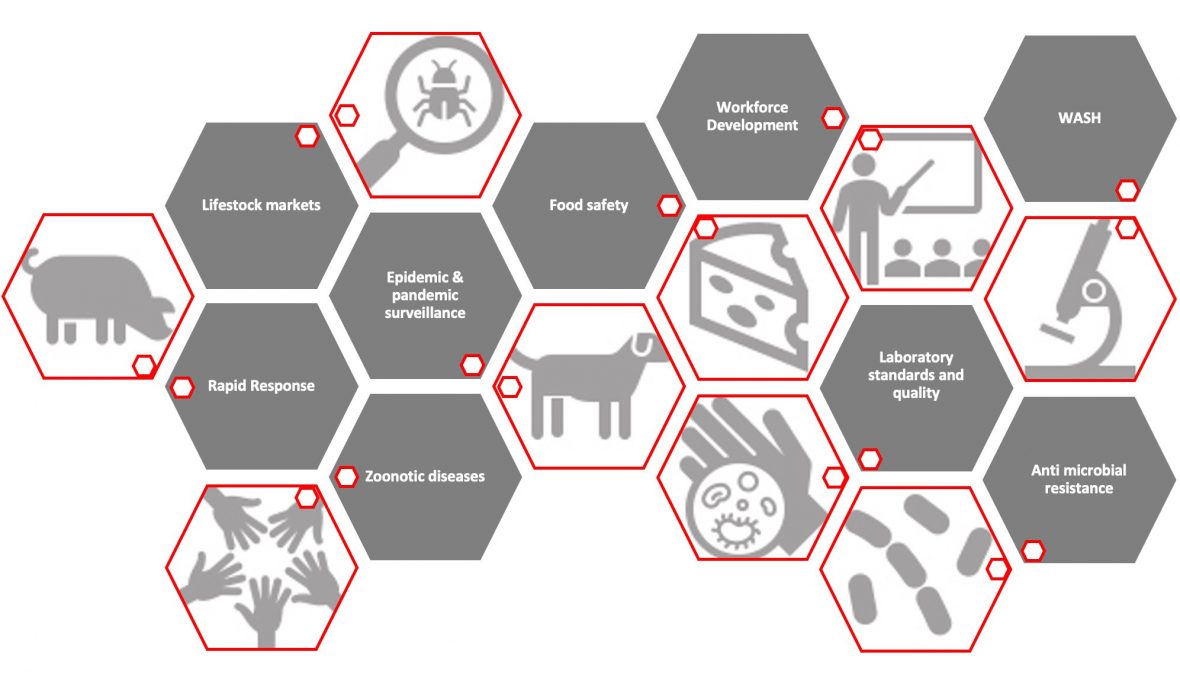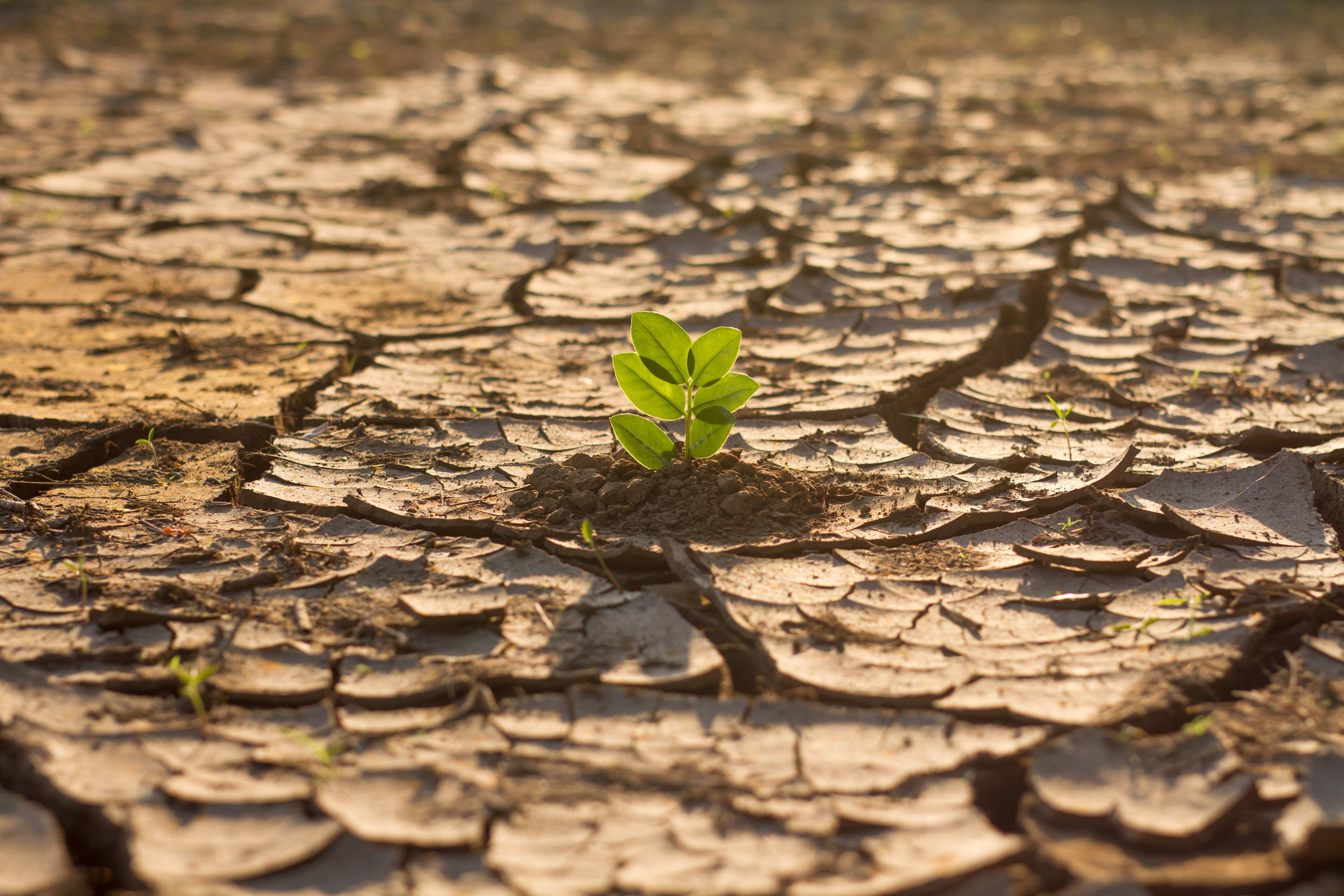

One-Health
Global population growth and climate change are increasingly threatening food security and the health of the world's population. Many health risks, especially in the area of infectious diseases, are closely linked to industrial agriculture, increasing urbanization, global trade and, last but not least, the great mobility on and between continents. The dangers range from the emergence of new viral or bacterial diseases transmitted from animals to humans by overcoming the species barrier (zoonoses), to climate-induced expansion of distribution areas of vector-borne diseases, to the development of antimicrobial resistance due to the thoughtless use of antibiotics both in human medicine and preventively in industrial animal husbandry.
The mechanisms are diverse and shaped by regional environmental, socio-economic, structural and cultural influences. The Corona pandemic (2020; wildlife transmission; China), but also the Ebola outbreak in West Africa (2014; wildlife transmission Guinea), EHEC (2011; contaminated shoot seeds; Egypt), swine flu (2009; livestock transmission; probably Mexico/USA), or mad cow disease/BSE (esp. 1992-2000; livestock transmission; UK) are only a few prominent examples demonstrating the close link between environmental hygiene, animal and human health. In addition, there is the widespread spread of multidrug-resistant germs, essentially promoted by the production of animal foods, which today endanger especially immunocompromised people in medical care. We are pleased to contribute expertise on this future topic in the coming year within the framework of the Globalvorhaben One-Health of the BMZ (implemented by the GIZ).
